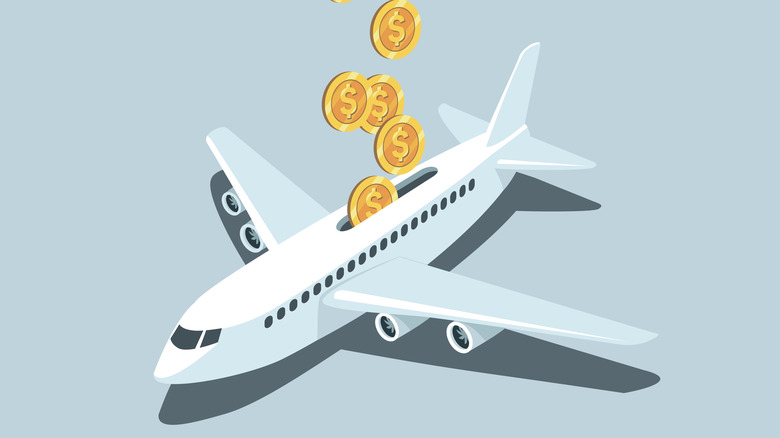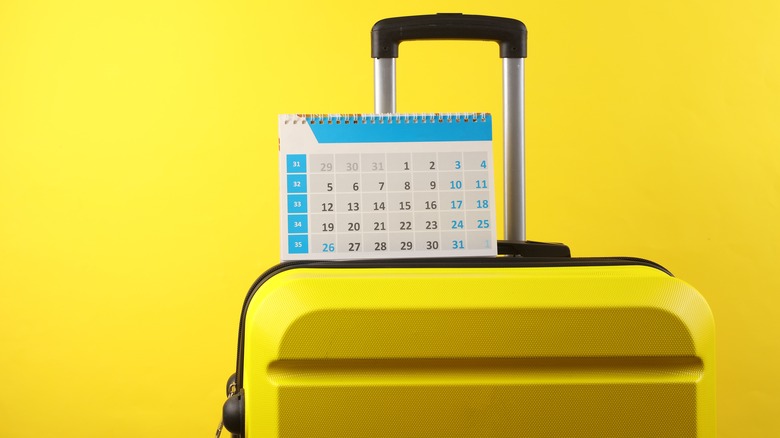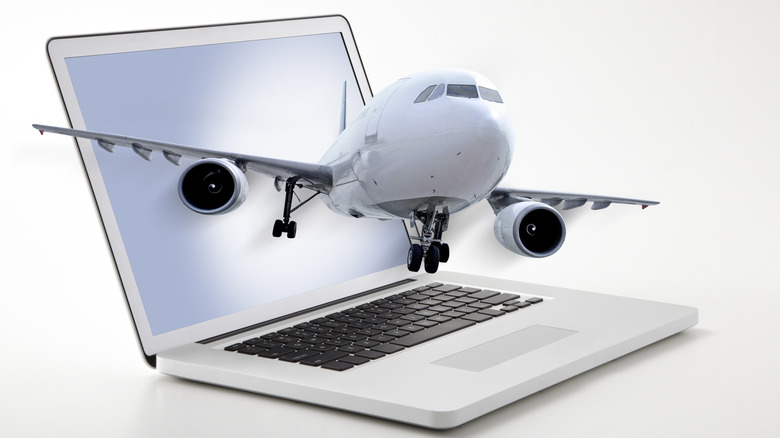When Is The Best Time To Book Flight Tickets If You Want A Deal?
Whether you're planning a trip to visit family over the holidays or take that international vacation of a lifetime, many travelers are getting sticker shock when pricing airfare. High fuel prices, a labor shortage, and pent-up demand from the Covid-19 pandemic have conspired to launch plane tickets into the stratosphere. If you're looking to save a little money on your next jaunt, choosing the right month and day to travel can make a big difference in airfare pricing, as does how far out from the departure date the tickets are purchased.
As a general rule of thumb, airlines begin selling flights about one year in advance, though some discount carriers might keep a somewhat shorter window. Still, there's a lot of room for price fluctuation between the time a flight is released for sale and the time when the wheels leave the ground. In fact, the average airfare changes a whopping 49 times over its lifespan. Obviously, you'll want to avoid waiting until the very last minute to purchase tickets, because prices will often spike in the weeks or days leading up to the flight, but there are other nuances to consider as well.
Resist the urge to book too soon
According to a recent study by CheapAir.com that analyzed almost one billion transactions, the best time to pull the trigger on airfare to your dream destination is, on average, 70 days prior to the departure date. But that doesn't mean you should only check fares on that exact date — what CheapAir calls the "Prime Booking Window" is actually a range of 46 to 164 days in advance.
Flyers might be tempted to purchase their tickets as soon as possible for the best selection of times, class of service, and seats, not to mention the ability to plan the rest of the trip such as booking hotels around concrete flight dates. Unfortunately, that peace of mind comes with a steep price tag because fares are seldom discounted seven to ten months in advance.
The logic behind CheapAir's suggestion of booking 46 to 164 days out is that it's still early enough to find times and seats that are acceptable to you, but with the potential for discounts and sales starting to kick in. As far as which particular month of the year represents the best bargain, January and February are typically the cheapest times to travel, while July and December are the most expensive.
Use day of the week and search engines to your advantage
Contrary to popular belief, the exact day of the week that a ticket is purchased has little effect on price. Based on data gathered by Google Flights over the past five years, there's only a 1.9% savings for booking your flight on a Tuesday, Wednesday, or Thursday rather than on a Saturday or Sunday. What's far more important is what day of the week you're planning to travel on. Not surprisingly, it's most expensive to travel on weekends. Wednesday is the cheapest day to fly, with an almost $100 savings over flying on Sunday, the most expensive day. Flying on Tuesday is the next best alternative, averaging a $94 savings versus traveling on Sunday.
Speaking of Google Flights, the search giant has recently beefed up its tools to help flyers find the best deal. To begin, upgraded insights will be displayed with search results to help determine if flyers should jump on a deal or if the price is likely to fall based on historical data.
If shoppers do decide to wait, Google Flights can track the price and send an alert if it does happen to drop significantly. The price tracking feature can be set up for specific dates or if you're flexible, anytime within the next three to six months. Finally, select flights purchased on Google Flights are eligible for a price guarantee, whereby the company will refund the difference via Google Pay if the price falls. Google Flights competitor Kayak also provides advice on pricing trends and shows so called "Hacker Fares" which utilize two different airlines to form a round-trip ticket.


